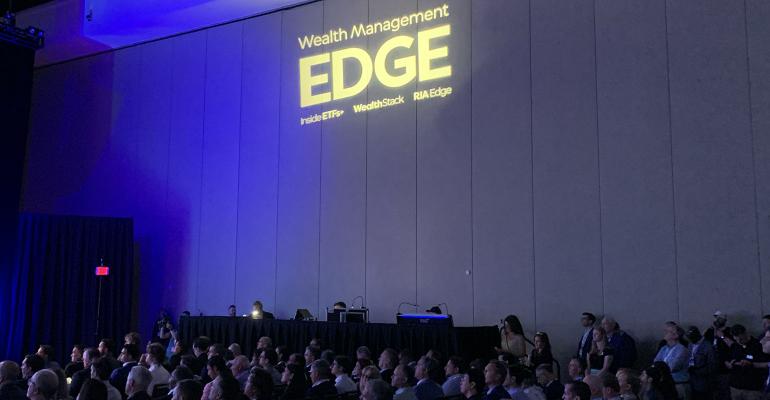Despite a general feeling of uncertainty in the marketplace, the outlook for U.S. investors remains largely positive, according to Brian Klimke, chief market strategist with Cetera Financial Group, who gave the “Navigating Market Dynamics: Trends Impacting Advisors and Clients” keynote talk at the Wealth Management EDGE conference at The Diplomat Beach Resort in Hollywood Beach, Fla. on Monday.
Clients are expressing worry about inflation, high interest rates, the possibility of a recession and political uncertainty, Klimke noted. However, in most cases, the macroeconomic data shows no reason for those concerns, which are primarily driven by a misunderstanding of market forces and a lack of historical context. Klimke brought up the fact that the latest reading of consumer sentiment in the U.S. came back lower than it was in May 2009, during the depth of the Great Financial Crisis. Meanwhile, today’s unemployment rate stands at 4%, and the stock market is near an all-time high, he noted.
Many Americans also believe that they need to see prices decrease as a sign that inflation is easing. In reality, today’s prices are here to stay while further price growth is easing, according to Klimke. The good news is that high shelter costs are the main force currently driving up inflation figures, accounting for 40% of CPI, he noted. The market has witnessed some rent deflation, but that data has not yet made it into CPI numbers. And when shelter costs are taken out of CPI, the inflation figure stands at approximately 2%, the Fed’s target rate.
As a result, Klimke believes the Fed will cut rates this year and might still have time to cut them three times, as discussed at meetings in late 2023. At the same time, he added that most of the interest rate-sensitive sectors of the economy, such as manufacturing and housing, have already bottomed out and appear to be on their way toward recoveries.
Klimke also reassured the audience that despite what’s turning out to be a contentious election season, neither candidate’s win is likely to make the stock market plummet. He presented a chart that showed that during every election year between 1960 and 2020 except two, the S&P 500 ended up in the positive category. The two exceptions—2000, when the S&P 500 lost 9.1%, and 2008, when it fell 37%—coincided with the dot-com bust and the Great Financial Crisis, respectively.
The one economic indicator that has given Klimke a bit of a pause involves job growth numbers. The unemployment rate has been under 4% for 27 straight months, but it’s starting to slowly creep up.
Historically, the “unemployment rate tends to bottom before a recession and then starts ticking up,” he noted. “I do get a little bit nervous about this, but nothing about this pandemic recovery has been normal, so I take it with a grain of salt.”
